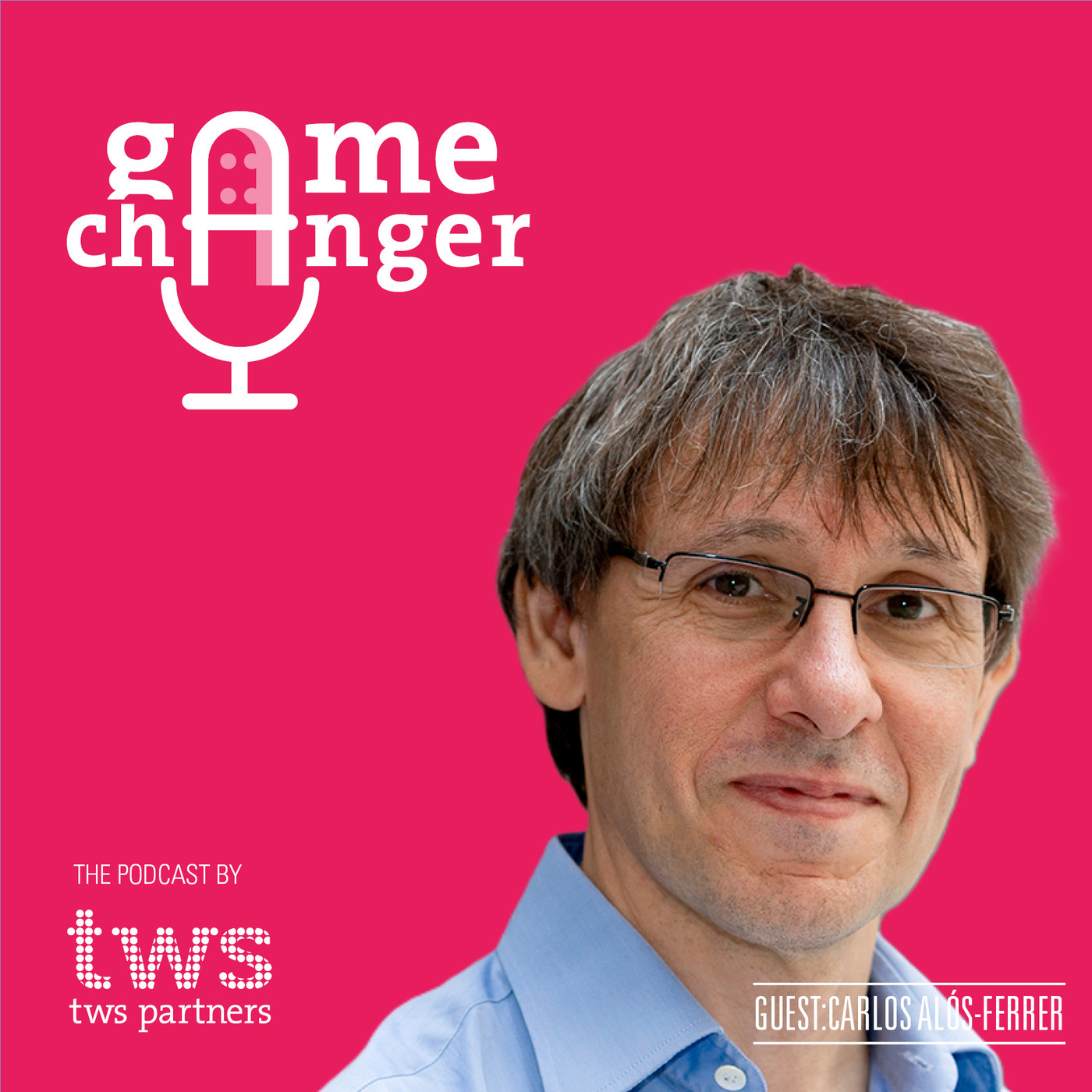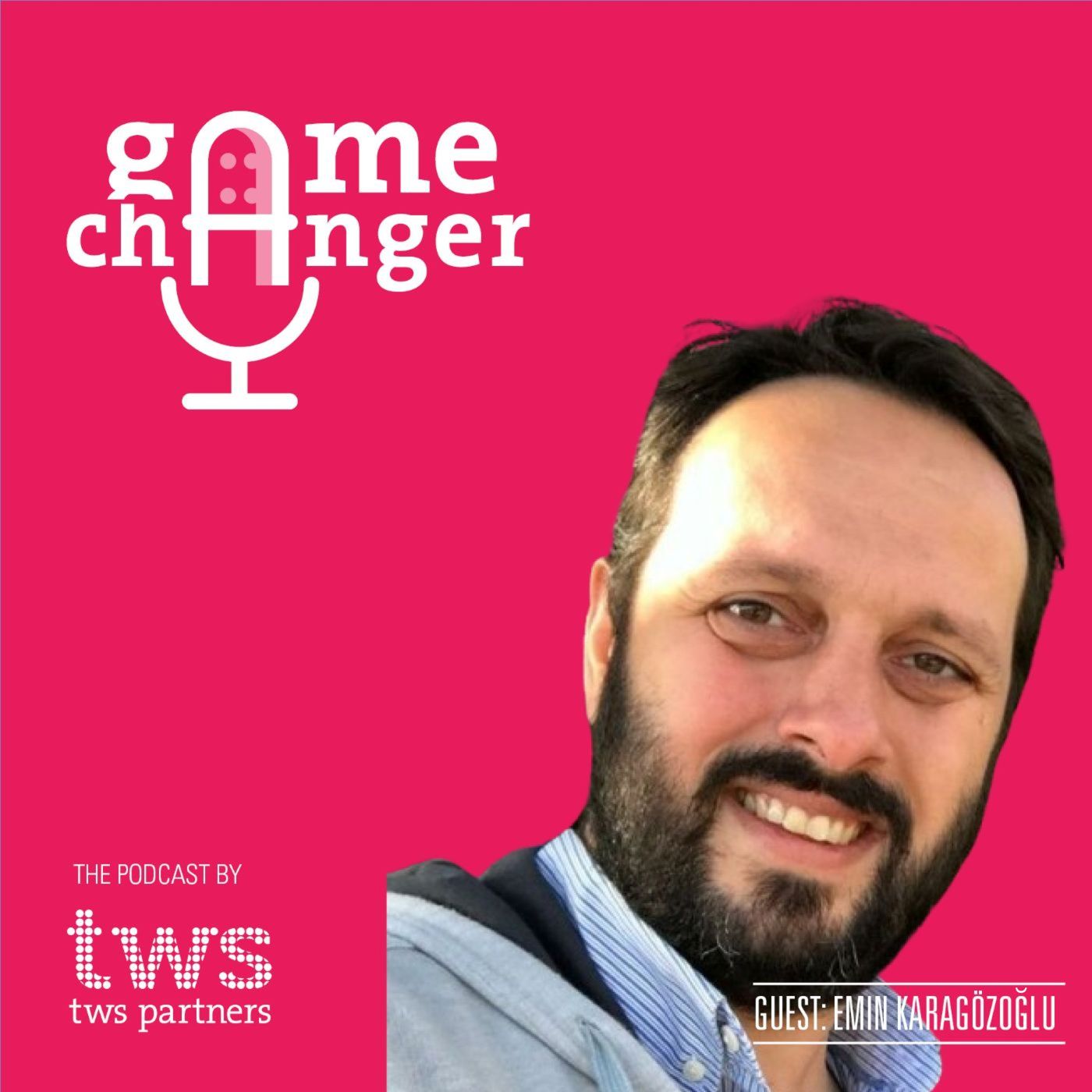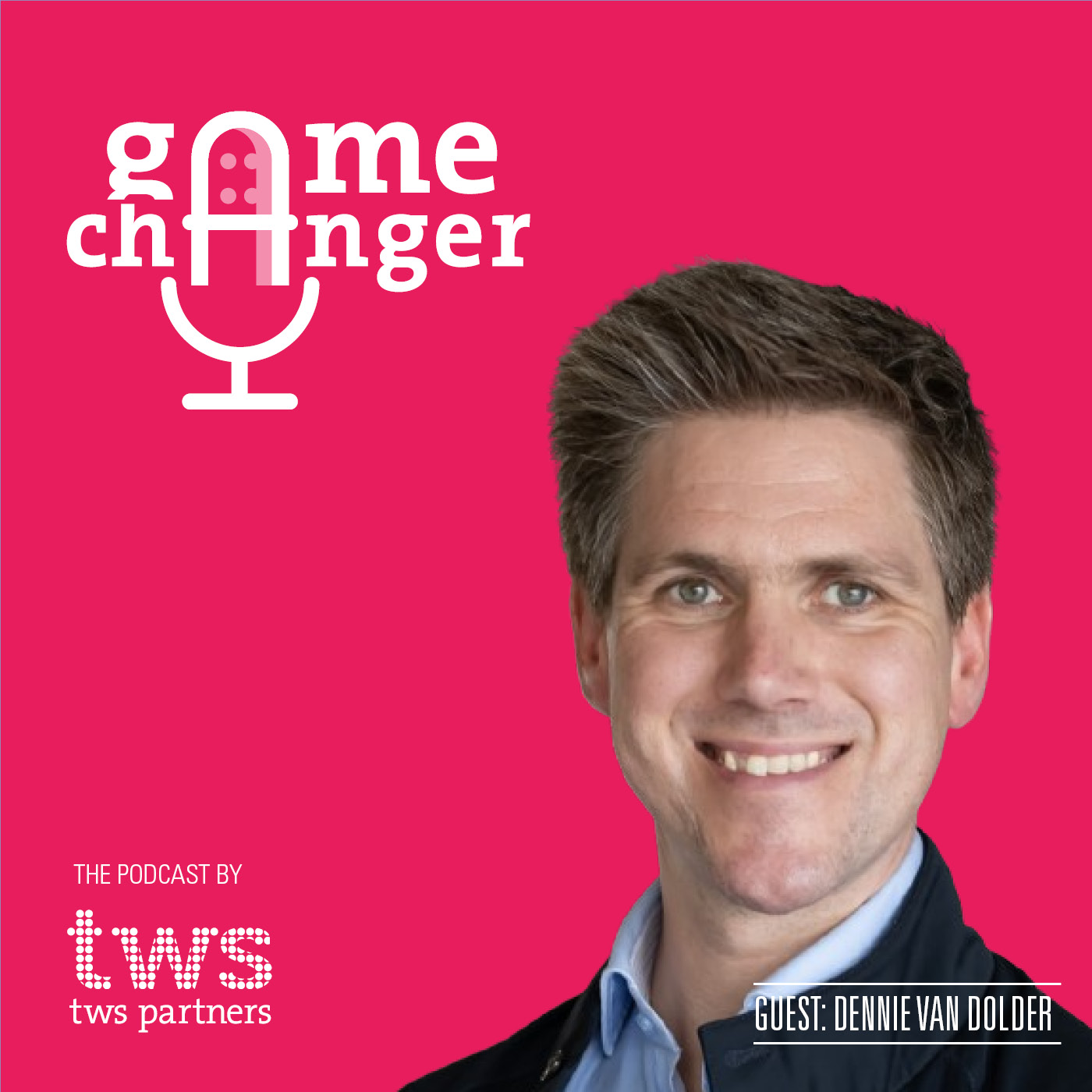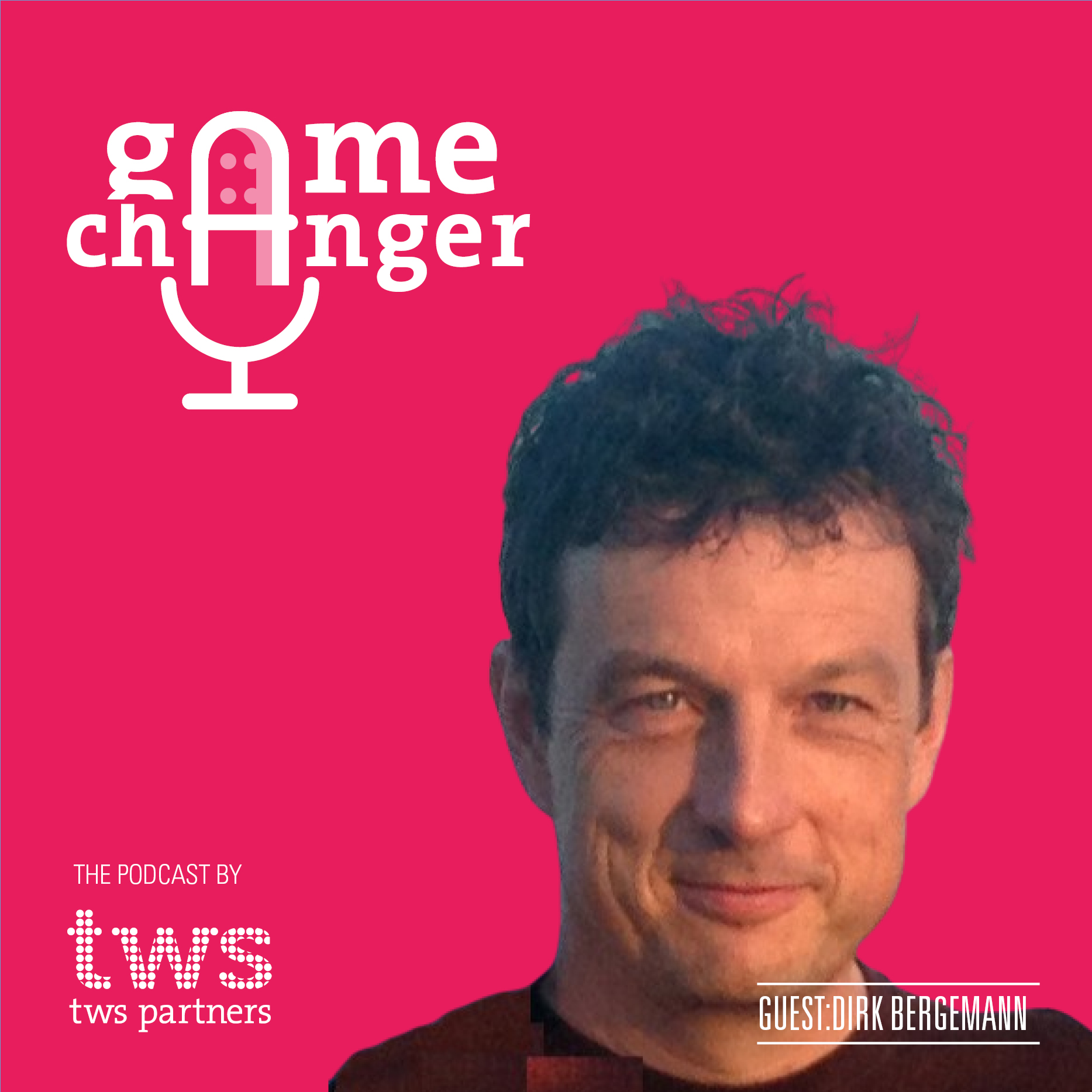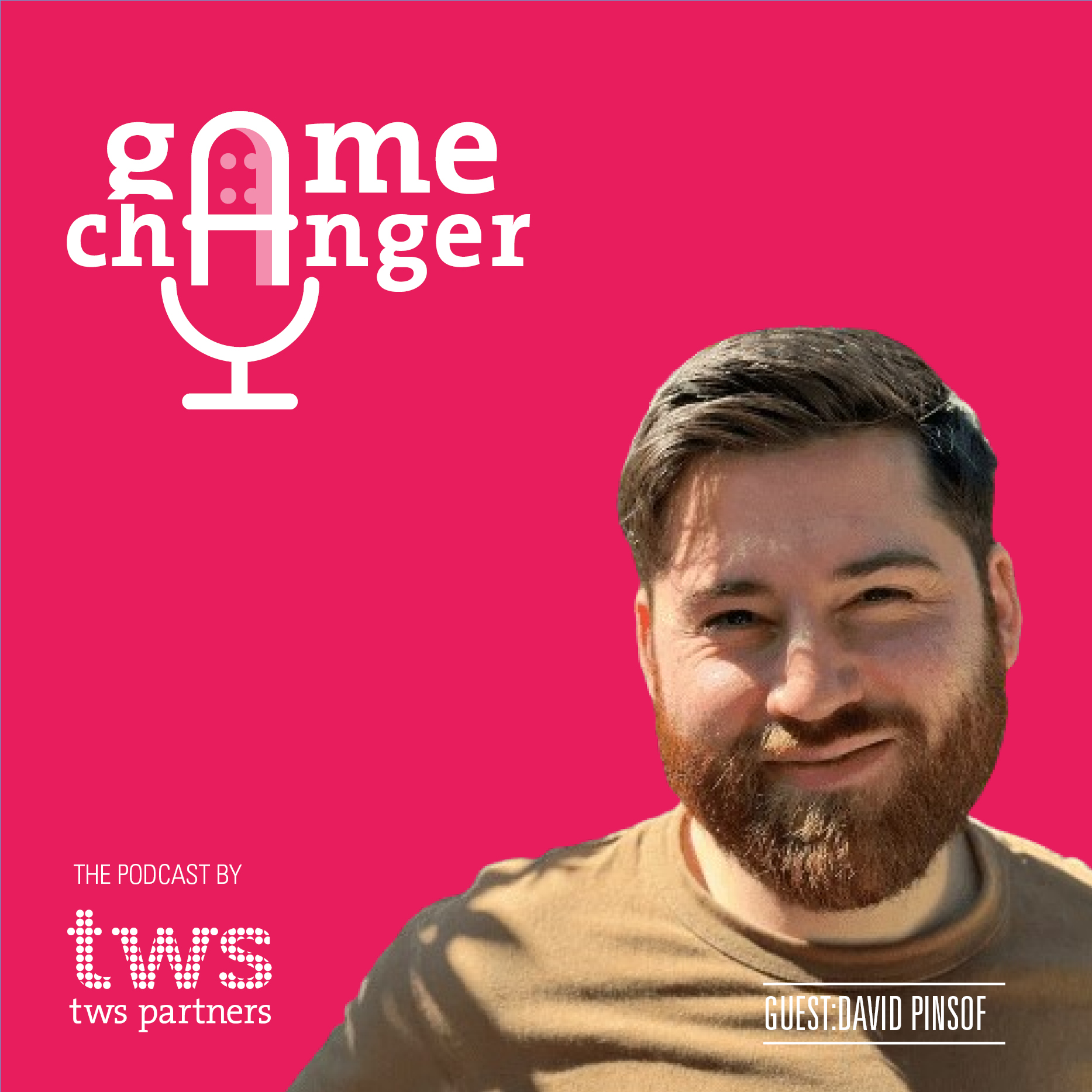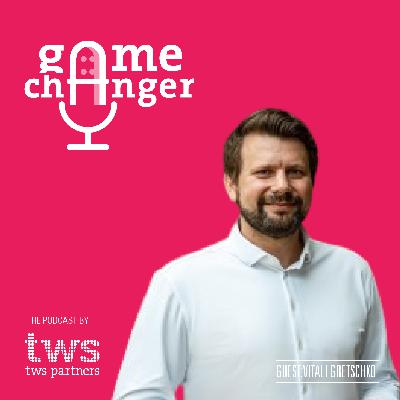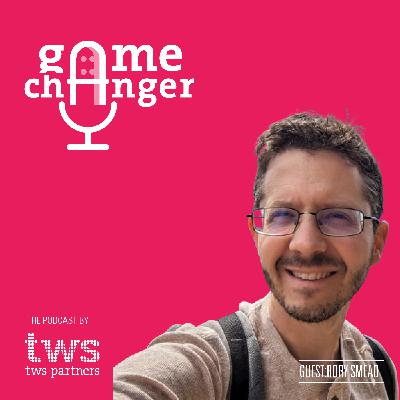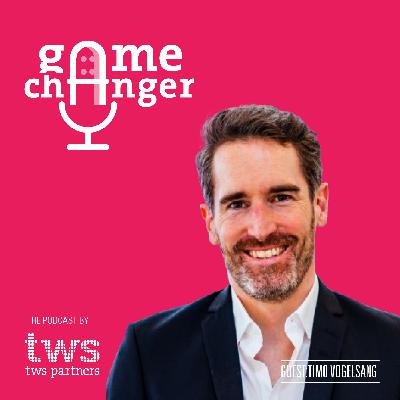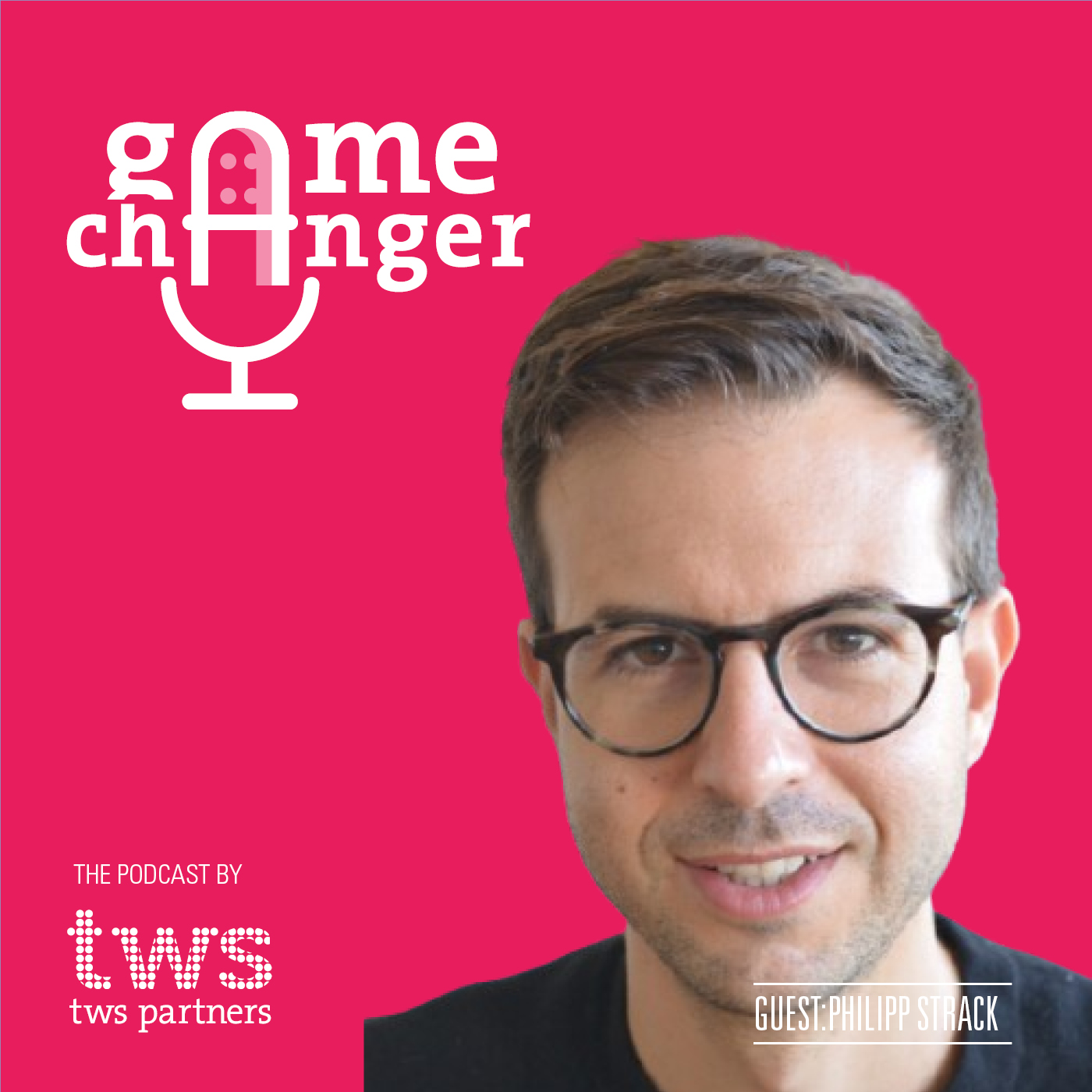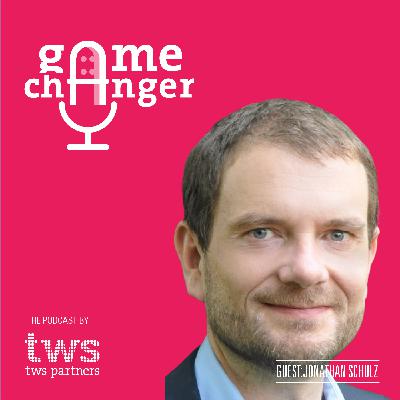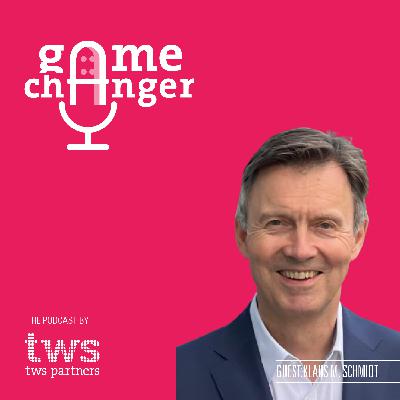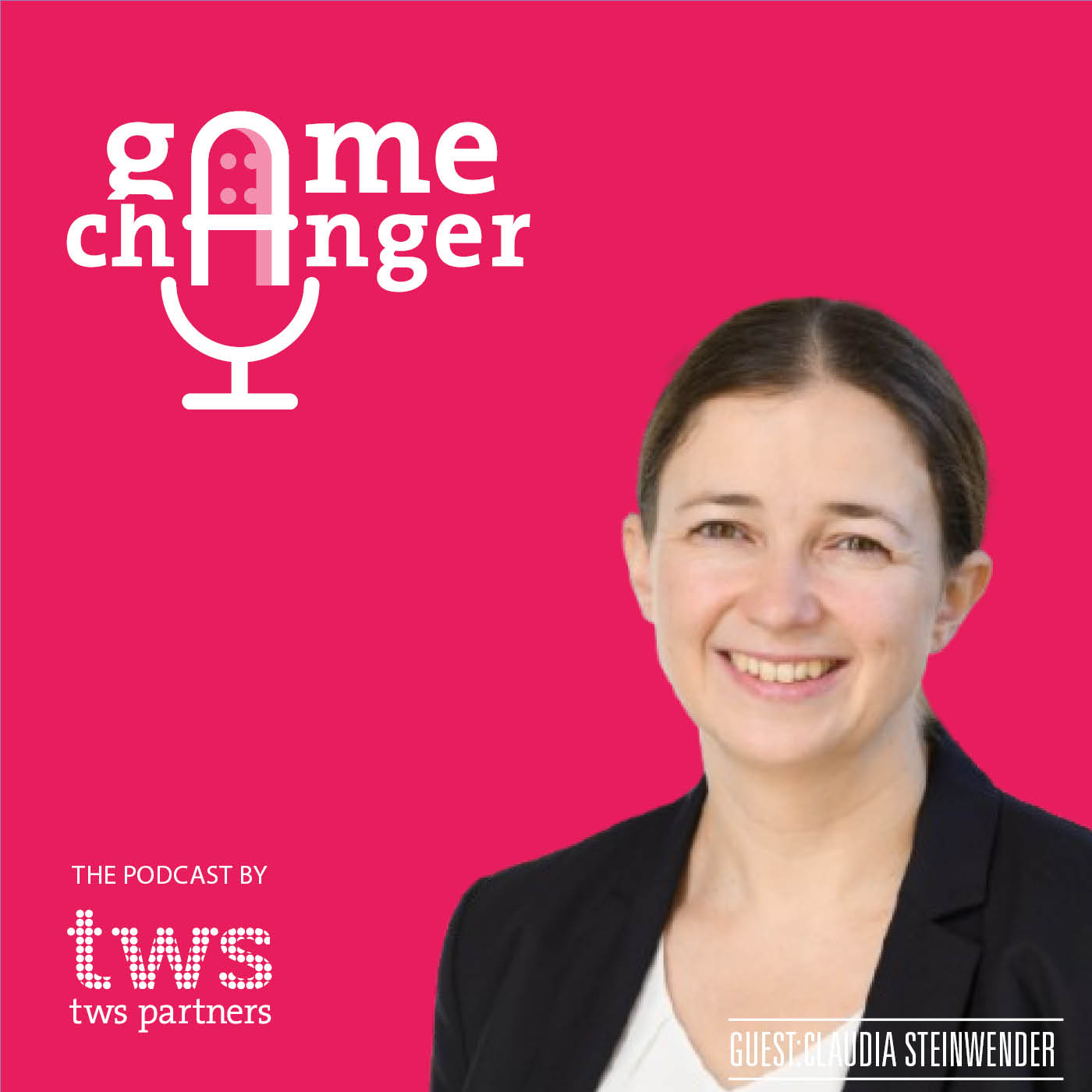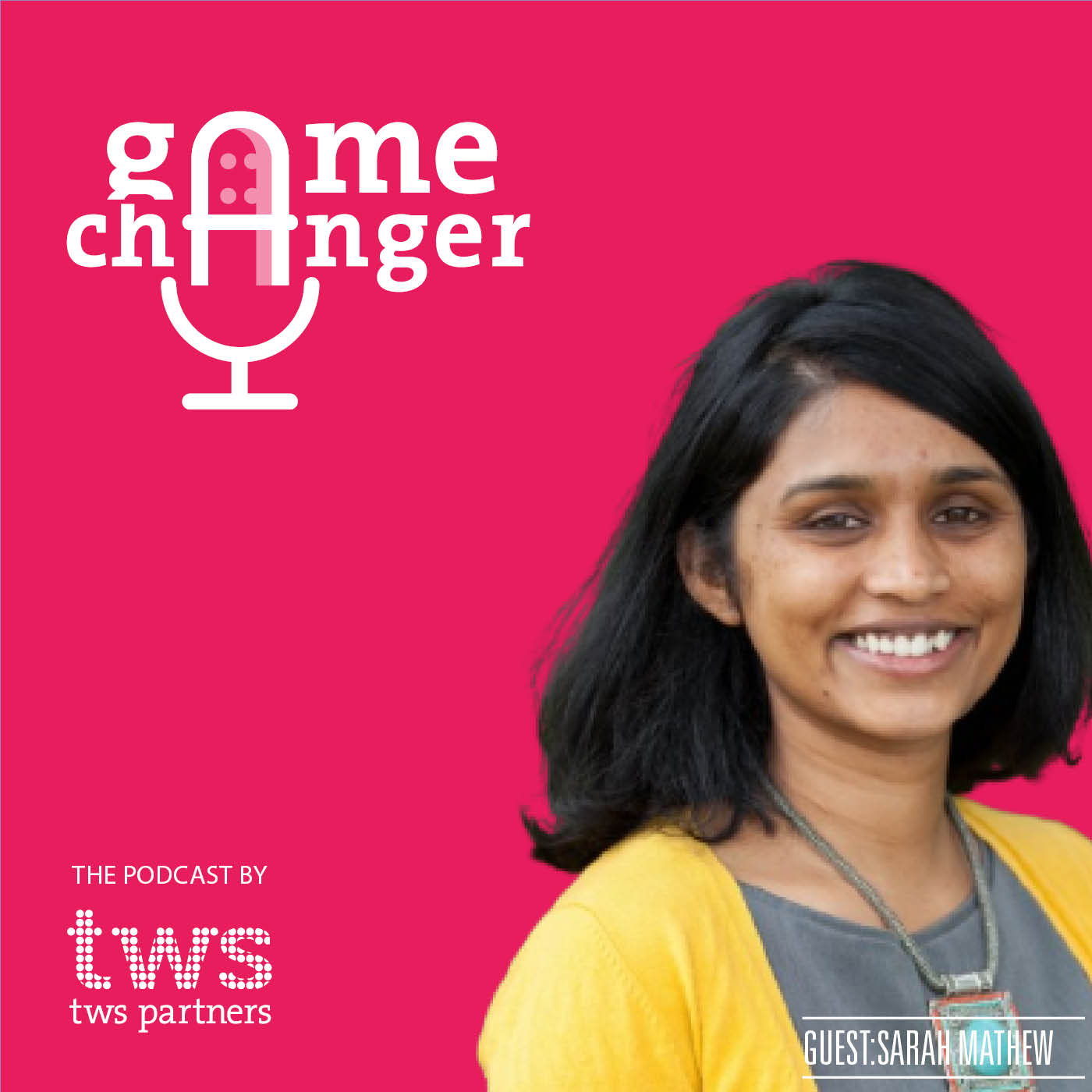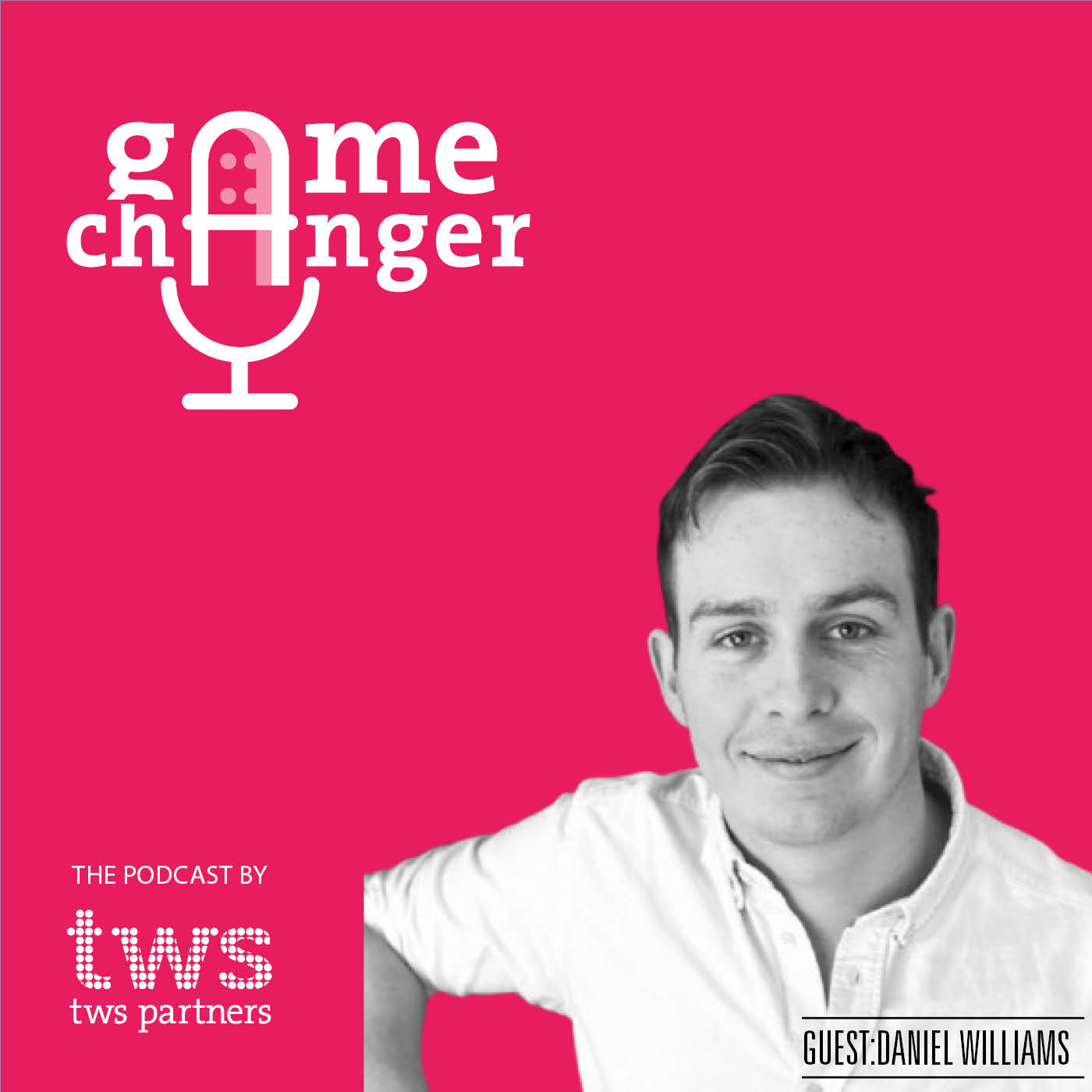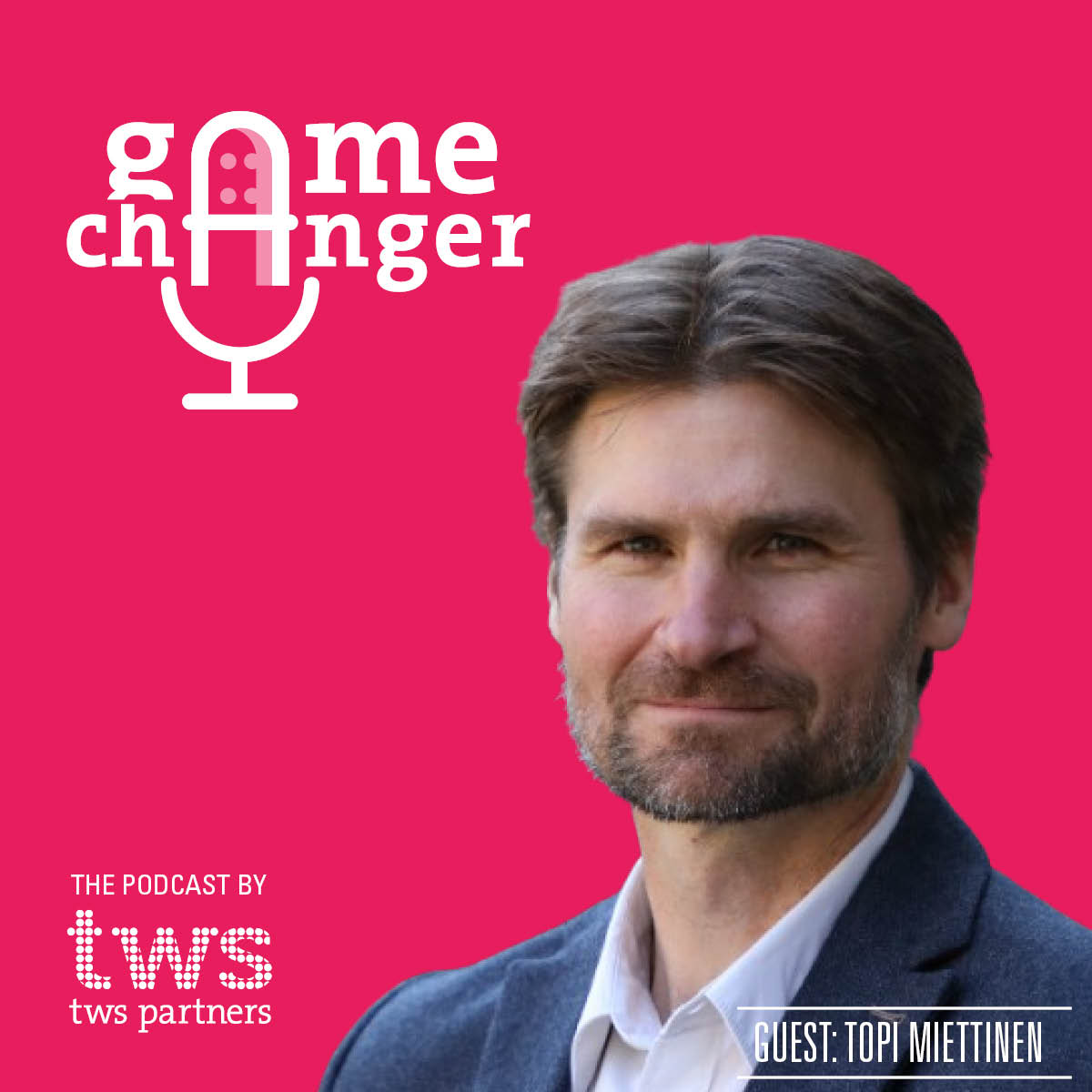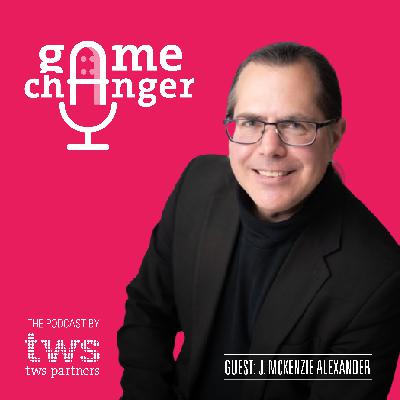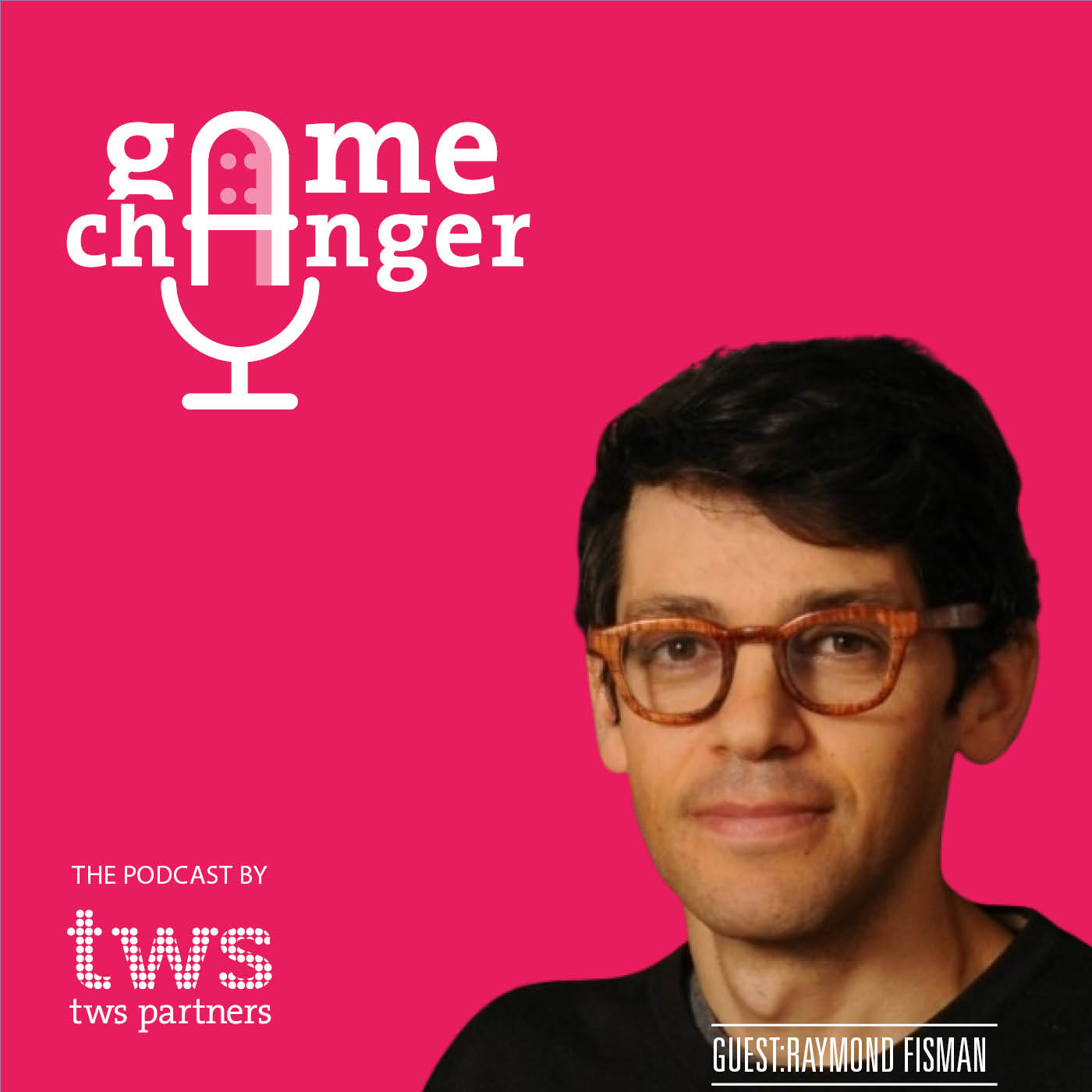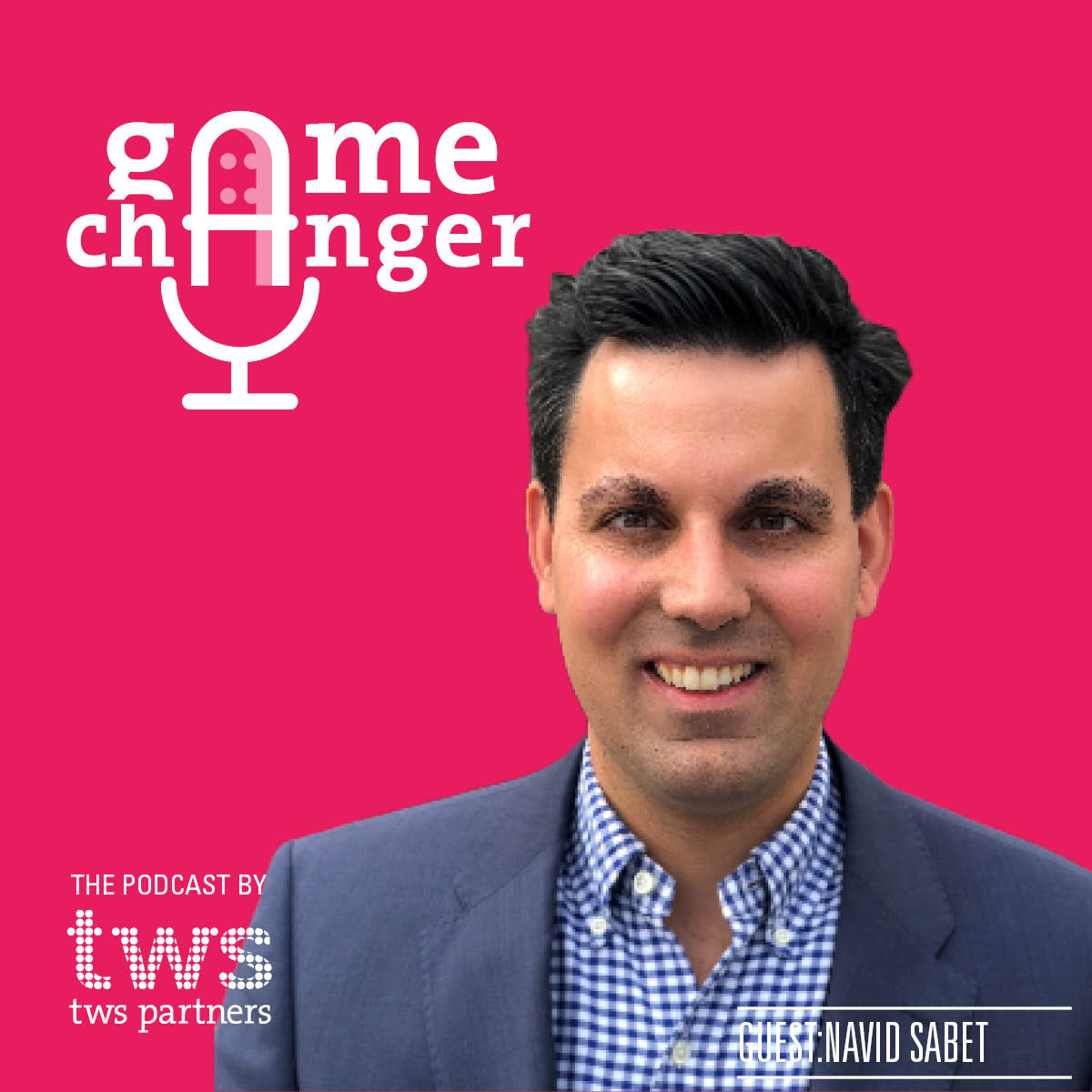Discover Game Changer - the game theory podcast
Game Changer - the game theory podcast

Game Changer - the game theory podcast
Author: TWS Partners
Subscribed: 17Played: 227Subscribe
Share
Description
In Game Changer, the podcast by TWS Partners, we want to share our enthusiasm and passion for game theory and its applications.
We invite guests from business and academia to discuss how they use the power of game theory in their profession to make a difference – and to learn some fun anecdotes, useful facts and valuable insights along the way. Join us on this journey, and find out that game theory is much more than a topic for ivory tower discussions.
We invite guests from business and academia to discuss how they use the power of game theory in their profession to make a difference – and to learn some fun anecdotes, useful facts and valuable insights along the way. Join us on this journey, and find out that game theory is much more than a topic for ivory tower discussions.
115 Episodes
Reverse
In this episode we are talking about corporate scandals, selfishness, and how game theory can help us understand when people give in to temptation. Carlos Alós-Ferrer explains how his “Big Robber” experiment shows that while people often act pro-socially in classical economic games, things change when individuals are given the chance to earn large sums of money at the expense of harming many others. We also discuss how insights from psychology and neuroscience enrich economics by highlighting the importance of process data such as response times. Carlos Alós-Ferrer is Chair Professor of Economics at Lancaster University (UK). His research spans economics, psychology, and neuroscience, with a focus on decision-making processes and the interdisciplinary field of psycho-economics. He is Editor-in-Chief of the Journal of Economic Psychology and also writes the blog Decisions and the Brain on Psychology Today.
In this episode, we dive into the world of experimental research on unstructured bargaining, exploring how real-world negotiations unfold when stripped of rigid rules and scripts. Our guest Emin explains how opening offers shape the conversation, the unspoken dance of reputation, and the ticking clock of deadlines – showing that even in seemingly messy contexts, strategic patterns emerge. Emin Karagözoğlu is Associate Professor of Economics at Bilkent University. His work spans behavioural and experimental economics, game theory, and neuroeconomics, with a strong research focus on bargaining, fairness, morality, and dynamic negotiation processes.
In this episode we explore what motivates people to give, using insights from a Dutch TV game show where a live audience decides how to split €10,000 among three contestants. We discuss how real-world data from natural experiments can help answer questions about fairness, impact, and generosity - and what this means for fundraisers and policymakers. Dennie van Dolder is Senior Lecturer (Associate Professor) at the University of Essex. His research focuses on behavioural economics and empirical game theory, often drawing on data from game shows to study real-life decision-making.
In this episode we dive deep into the economics of digital markets with Dirk Bergemann. We discuss how search platforms like Google created entirely new marketplaces around user attention and private information, what makes digital markets so unique, and how auction design evolved to match the scale and complexity of internet advertising. Dirk also shares insights from his own research on how platforms collect and use user information and gives an economist’s perspective on how emerging technologies - like large language models - might reshape the future of search and advertising. Dirk Bergemann is Douglass and Marion Campbell Professor of Economics at Yale University and an expert in game theory, contract theory, and market design. Among others, his research is focused on economics of digital markets - especially those shaped by search engines and advertising auctions.
In this episode, we talk to David Pinsof about the surprising ways people form their beliefs and build alliances. Drawing on his survey with Cards Against Humanity, he shares how people often hold contradictory views and what this reveals about group coordination. We also dive into his game-theoretic model of coalition-building, explore how humor functions as a coordination tool, and discuss the deeper logic behind seemingly irrational behavior. David Pinsof is a behavioral scientist whose work combines evolutionary psychology and game theory, to understand belief formation and social dynamics. He is also one of the co-creators of "Cards against Humanity", the author of the blog Everything Is Bullshit and recently launched the podcast - Evolutionary Psychology (The Podcast) - in which he explores cutting-edge work in the evolutionary behavioral sciences. You can find the paper „Strange Bedfellows" David mentioned in the episode here.
In this episode we are talking to Vitali Gretschko about how generative AI can be used to simulate strategic behaviour in auctions. We explore where AI tools can support auction design, where they fall short, and how practitioners should interpret simulation results. Vitali also explains why AI is best seen as a co-intelligence that needs expert guidance. Vitali Gretschko is Professor for sustainable Market Design at the University of Münster. His research focuses on auction theory, market design, and applying game theory to practical strategic problems.
In this episode, our guest Rory Smead shares insights on spite and what game theory can teach us about this puzzling behaviour. He explains why people sometimes punish others even at a cost to themselves, and whether this can be understood through more than just fairness. Using the ultimatum game as a central example, he discusses how spite can influence decision-making and what this reveals about both human and animal behaviour. Rory Smead is Professor of Philosophy and the Ronald L. and Linda A. Rossetti Professor for the Humanities at Northeastern University. His research focuses on philosophy of science, philosophy of biology, logic, and game theory, with a particular interest in understanding social behaviour through formal models.
In this episode we are talking to Timo Vogelsang about why incentives aimed at reducing absenteeism can sometimes have the opposite effect. Based on a Field Experiment in a German supermarket chain, he explains why offering bonuses for attendance backfired. We also explore how incentives can unintentionally shape beliefs and undermine motivation. Timo Vogelsang is Associate Professor of Managerial Accounting at the Frankfurt School of Finance & Management. His research focuses on behavioural economics and public policy, with a particular interest in how incentives shape motivation and behaviour in real-world settings. You can find the paper Timo talks about in the episode here.
In this episode, we sit down with Philipp Strack to explore the hidden consequences of overconfidence. From distorted learning to discrimination and systemic bias, Philipp explains to us how overestimating ourselves can quietly shape our decisions, relationships, and even society — and why it’s not always a bad thing. Philipp Strack is a professor of Economics at Yale University with a secondary appointment as Professor of Computer Science. His research focus lies in decision-making and behavioral economics in dynamic contexts as well as in concepts like information cost and privacy, among others.
In this episode we explore how historical kinship structures, shaped in part by decisions of the Catholic Church, may have fundamentally changed the way humans are able to cooperate on a large scale. Using game theoretic concepts like reciprocity and network structure, we uncover how bans on cousin marriages and even modern Facebook data can help explain patterns of trust and cooperation today. Jonathan Schulz is Assistant Professor in the Department of Economics at George Mason University and Co-Principal Investigator of the interdisciplinary Historical Psychology Project. His research focuses on the historical and psychological roots of economic development, with a particular interest in how social networks and kinship structures influence cooperation.
In this episode together with our guest Klaus M. Schmidt, we explore the economic challenges behind global climate agreements. We discuss why past agreements like the Kyoto Protocol and the Paris Agreement struggled to deliver the desired results and examine how a new negotiation design centered on a uniform CO₂ price could lead to better outcomes. Klaus also shares insights from experimental studies testing this approach in practice. Klaus M. Schmidt is an economics professor at Ludwig Maximilian University of Munich, and an expert in social preferences and contract theory, among others.
In this episode, we explore how globalization has shaped trade and innovation—and why rising protectionism is challenging its benefits. What happens when countries impose tariffs and trade restrictions? And how can policymakers navigate the balance between open markets and domestic interests? Claudia Steinwender is a Professor of Economics at Ludwig Maximilian University of Munich. Her research focuses on international trade, innovation, and economic history, with a particular emphasis on how globalization shapes firm behavior and trade dynamics.
In this episode we are speaking with Sarah Mathew about cooperation – especially how cooperation is achieved in the absence of institutions. Sarah gives some theoretical background, shares the concept of free rider problems and the relationship to punishment. She then illustrates the background based on her fieldwork: She has studied how the Turkana people achieve cooperation when going on raids with possibly even deadly consequences for individual warriors. Sarah Mathew is Associate Professor at the School of Human Evolution and Social Change at Arizona State University. Her research is focused on studying why humans cooperate and how the evolution of this unique form of cooperation is tied to the origins of moral sentiments, cultural norms, and warfare. To address these issues, she combines formal modelling of the evolution of cooperation with fieldwork.
In this episode we are speaking with philosopher Daniel Williams about misinformation—what it is, how it spreads, and whether it is truly on the rise in the form of “fake news”. We also explore why people cling to irrational beliefs and how rationalization shapes public discourse. Finally, Daniel shares strategies for tackling misinformation and engaging with those who hold questionable beliefs. Daniel Williams is a philosopher and researcher at the University of Sussex. His research is focused on the social functions and causes of beliefs with a special interest in self-deception, religious beliefs, political ideologies, and delusions. In his blog conspicuous cognition https://www.conspicuouscognition.com/ Dan publishes interesting essays on various topics.
In our 100th episode, we bring together Matthias Schranner of the Schranner Negotiation Institute and Sebastian Moritz from TWS Partners to celebrate the power of Game Theory in high stakes negotiations. We explore real-world negotiation cases, discuss the Game Theory perspective on successful strategies, and highlight how the two intersect to empower decision-makers. Join us as we reflect on 100 episodes of insights and celebrate the partnership between Schranner Negotiation Institute and TWS Partners! Matthias Schranner is an FBI trained negotiation expert who together with his team at the Schranner Negotiation Institute advises business and government leaders around the globe in navigating high stakes situations. Sebastian Moritz is managing partner at TWS Partners and advises global executives and organizations on strategic negotiations, incentive systems, transformation, and sustainability, blending game theory expertise with a passion for innovation.
In this episode, Topi Miettinen shares his view and research on insights from Game Theory on international conflicts. We start discussing different examples of conflicts, e.g. complex negotiations within the EU and even war. Based on the examples Topi shares his research on the role of commitment to finding agreements. He also shares how his research extends from a bilateral negotiation (as in a war of two parties) situation to a multilateral situation (as in the EU). Topi Miettinen is professor of economics at Hanken School of Economics and Helsinki Graduate School of Economics. His research focuses on behavioural and experimental economics, microeconomics, and game theory.
In this episode, we discuss with our guest J. McKenzie Alexander evolutionary game theory and its applications. We start discussing different models from evolutionary game theory starting with the local interaction model and then moving to the replicator model. Based on that we then turn to applications in social theory especially when discussing proto-moral behaviour. J. McKenzie Alexander is Professor of Philosophy at the London School of Economics. His research explores the intersection of game theory, philosophy, and social theory. J. McKenzie Alexander has put together simulations of the discussed models on his homepage. Also, he is publishing a new book titled ‘The Open Society as an Enemy’.
In this episode, our guest Raymond Fisman explains to us the persistent challenge of corruption and the surprising ways in which political polarization and so called “wedge issues” help to sustain it. He shares his insights into why anti-corruption reforms remain elusive despite widespread public demand for honest governance and the creative measures some leaders have taken to battle corruption. Raymond Fisman is the Slater Family Professor in Behavioral Economics at Boston University. His research explores the complex ways in which corruption and other informal behaviors influence markets, governance, and economic development. If you want to know more about Raymond’s research, you can check out his homepage.
In this episode, we explore the contributions of this year’s Nobel Prize laureates in Economics – Daron Acemoglu, Simon Johnson, and James Robinson – and their work on the role of institutions in shaping economic prosperity. Our guest, Navid Sabet guides us through their core findings and shares his perspective on their influential research and its impact on the field of political economy. Finally, he connects these insights to his own research, examining how institutions affect immigration reform and economic opportunities. Navid Sabet is Assistant Professor in Economics at Goethe University Frankfurt. His research interests lie in the areas of political economy, applied microeconomics and public economics. Navid mentions the Nobel Prize winners’ famous paper from 2001, “The Colonial Origins of Comparative Development: An Empirical Investigation”. You can find it here. For more info on Navid’s research, you can check out his homepage or his paper on Immigrant legalization and the redistribution of state funds in the US.
In this episode, we dive into the world of online mediation mechanisms and how they can resolve disputes in digital marketplaces. As online transactions become more global and complex, the need for efficient, strategy-proof systems to mediate conflicts has never been more crucial. Selçuk Özyurt explains how these mechanisms should be designed to handle disputes fairly. In this context, we discuss properties like strategy proofness and efficiency and Selçuk explains under which conditions mediation mechanisms exist that fulfil these conditions. Selçuk Özyurt is an Associate Professor of Economics at York University, with a research focus on game theory, mechanism and market design, and conflict resolution. The content of this episode is based on his paper Strategy-proof Multi-Issue Mediation: An Application to Online Dispute Resolution, which he co-authored with Onur Kesten. --- Christmas raffle To participate in our Christmas raffle, just send an email to gamechanger@tws-partners.com and let us know which book you want to win. Deadline of the raffle is 15 December 2024.


